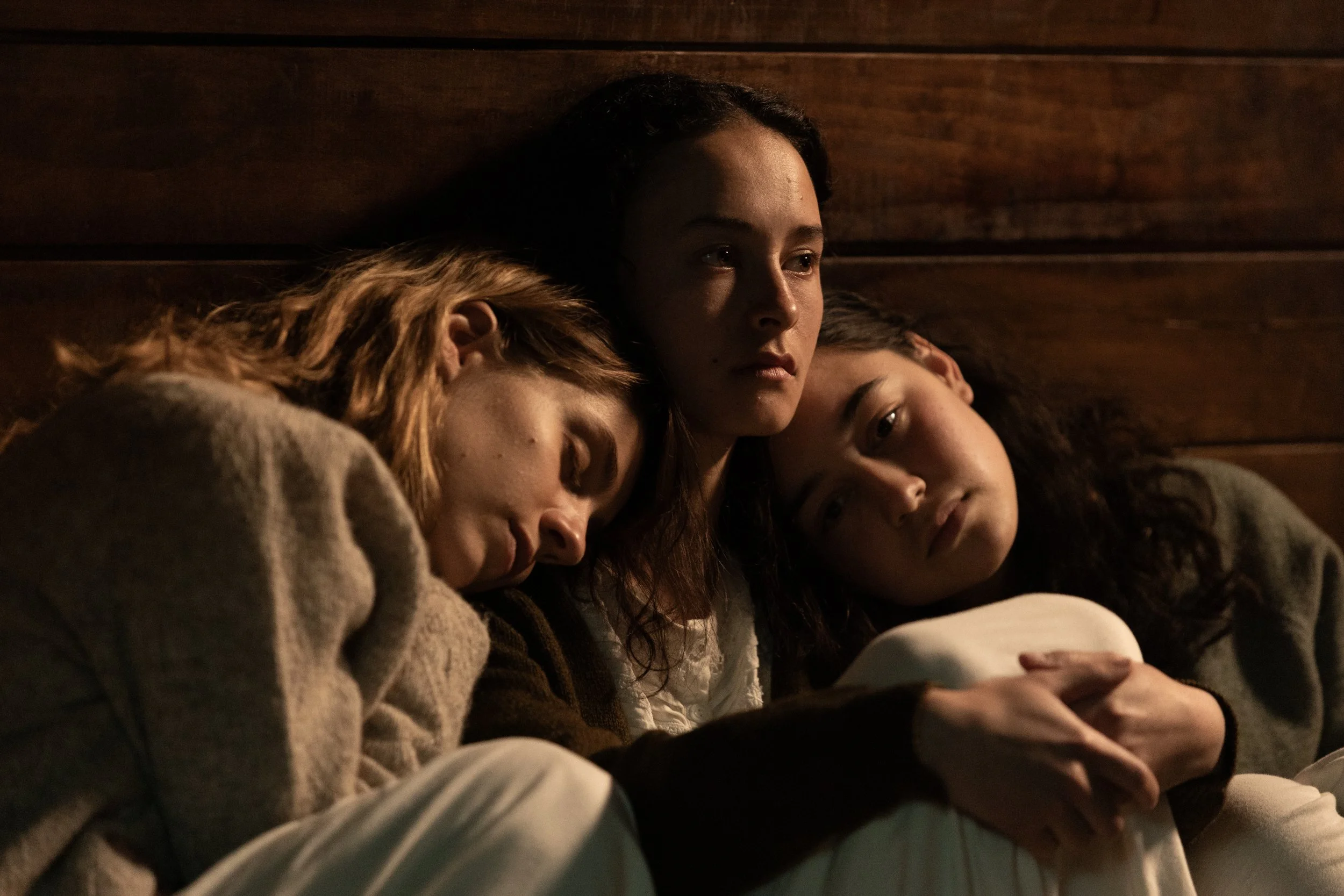We Were Dangerous: Youth and Hope Triumph in Kiwi Reform School Drama
By Liz Braun
Rating B+
We Were Dangerous is a cracking good story and an auspicious directorial debut from filmmaker Josephine Stewart-Te Whiu.
The coming-of-age tale features a trio of young women doing their best to survive a stint at the Te Motu School for Incorrigible and Delinquent Girls. It’s 1954, and what exactly defines a delinquent involves race, gender, orientation and socio-economic status.
According to the head matron, the girls at Te Motu School are, “Waifs, strays, vagrants, whores, sex delinquents, queers too.” Mostly, they are Indigenous and impoverished.
Of the three main characters, two — Nellie (Erana James) and Daisy (Manaia Hall) — are Maori. The third character, Lou (Nathalie Morris) is the big mystery here. According to Matron (Rima Te Wiata), the main boss of the school, Lou is white, wealthy, and has two parents. Why was she sent off to reform school? Matron speculates it must have involved married men. Sins of the flesh loom large here.
After a few girls try to escape the school, everyone is moved to an island facility to make sure there are no more attempts at freedom. The Te Motu school bills itself as preparing girls for marriage, teaching them domestic skills. But not first aid, notes Matron, as that knowledge might well inspire some girls to take more risks.
She lists the school’s three central goals: Christianize, civilize, and assimilate.
Reforming the girls involves bible studies, physical labour, and corporal punishment. Freedoms are curtailed. Girls are slapped and treated cruelly. It’s a reform school, so one can easily imagine the horrors, but what’s so attractive about We Were Dangerous is that it’s about the young women, not their oppression.
It’s an oddly exuberant film. For all their travails, the reform school girls are entirely full of life — sitting together in a field after outdoor work, performing a spontaneous haka, dancing together in a classroom with absolute joy and abandon.
These youthful creatures are set in a breathtakingly beautiful landscape (and soundscape) and almost nothing seems capable of diminishing their energy or their capacity for hope. In friendship they find strength.
Writers Maddie Dai and Josephine Stewart-Te Whiu need only a few details to fill in the earlier lives of their central characters, quickly outlining each girl’s earlier, pre-juvey life and her route to the school. It is deft storytelling, brought to life by terrific performances.
The girls are impertinent and often funny, despite attempts to erase their culture. When events take an even darker turn, Nellie decides it’s time to regain control of their lives.
We Were Dangerous is set in the ‘50s and when the Mazengarb report was floating around New Zealand, illuminating the dangers of young women. Sadly, the notion that somehow women are a threat and need to be controlled — body, mind, and soul — is entirely contemporary.
We Were Dangerous. Written by Josephine Stewart-Te Whiu and Maddie Dai, directed by Josephine Stewart-Te Whiu. Starring Rima Te Wiata, Erana James, Manaia Hall, and Nathalie Morris. At Toronto’s TIFF Lightbox April 10 For TIFF Next Wave (with star Erana James present for a Q&A) and in select Canadian cities thereafter.



